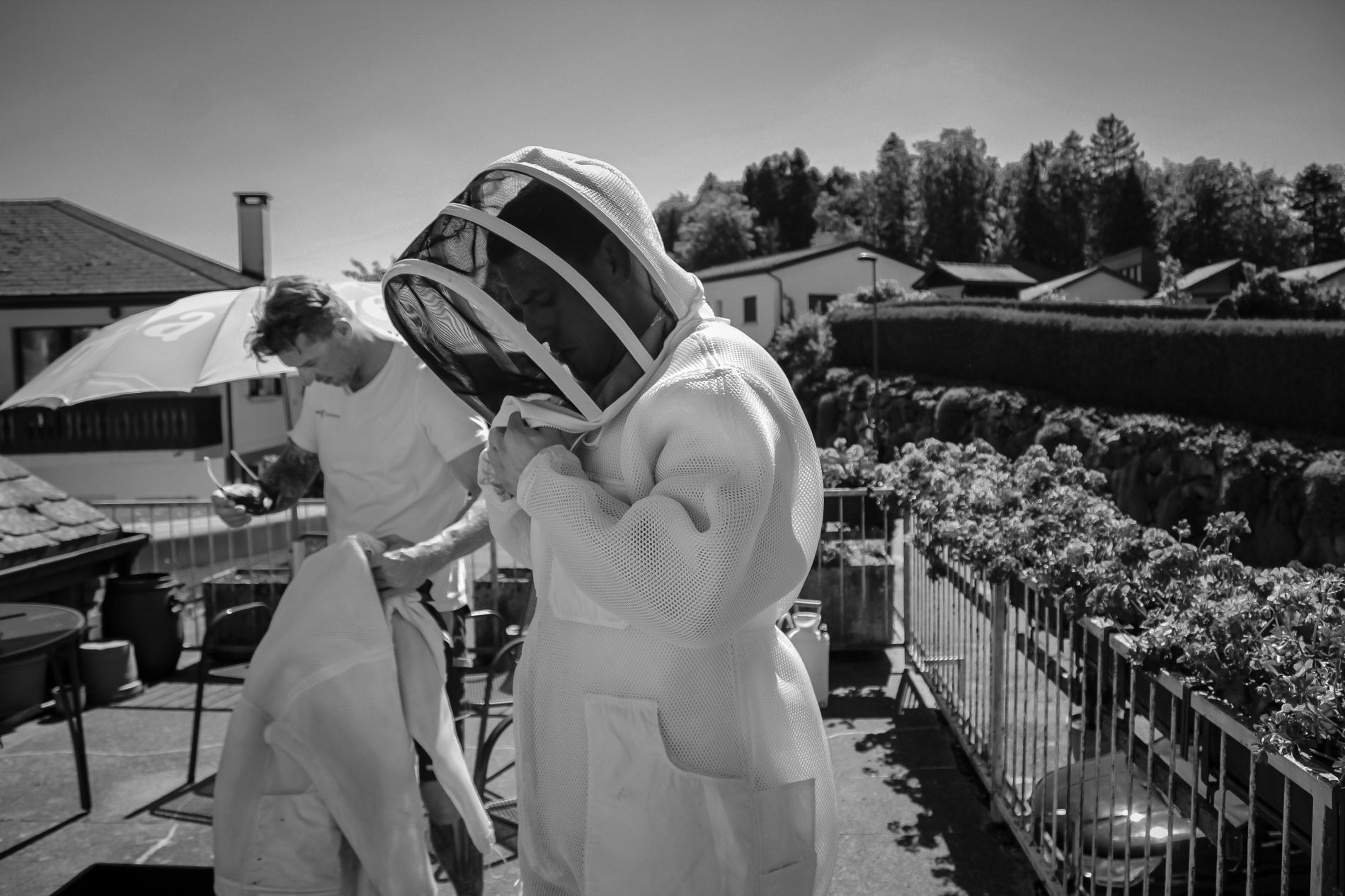
Fighting Asian hornets in Monthey
Have you discovered an Asian hornet's nest? We'll be on site quickly! Call now - Daily Mon-Sun 07:00-21:30. Contact us now: 058 510 22 54
Having the Asian hornet's nest removed
The invasive hornet species Vespa velutina, initially from South-East Asia, has aggressively expanded its presence to Switzerland and the surrounding subcontinent. While not posing any threat to humans, it has garnered attention for its hunting of honey bees, stirring alarm among beekeepers. A small group of these hornets can swiftly attack and wipe out a colony of bees in just a few hours. If you have discovered a hornet's nest on your house, patio, shed, or in your blind box, contact our experts for hornet nest removal in Monthey!
Use the uncomplicated telephone service of the Hornet experts in Monthey and simply inform us at 058 510 22 54, we will be on site quickly so that you and everyone in your area feel completely safe again.
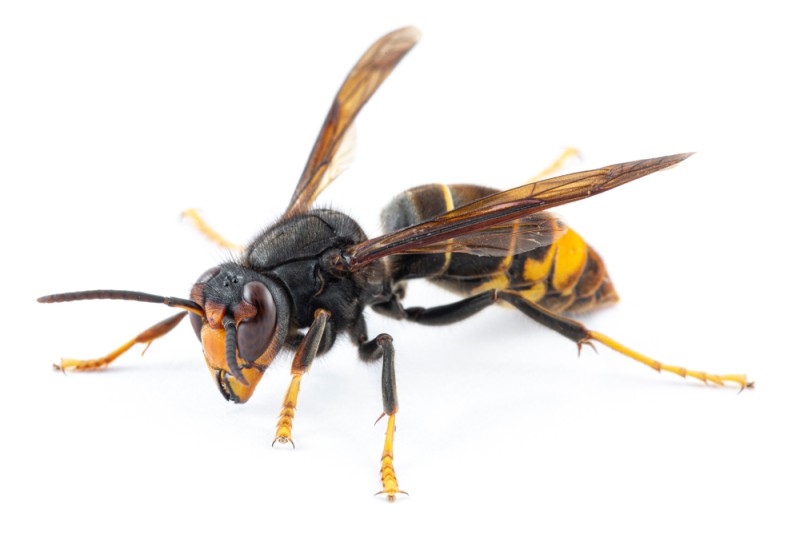

Appearance of the Asian hornet
Here are some characteristics that distinguish the Asian hornet:
1. Size: The queen can reach a length of about 3 cm, while the workers are slightly smaller and measure about 2.5 cm.
2. Color: The Asian hornet has a dark body that is almost black, with a yellow stripe at the back of the abdomen. Its face is orange-yellow.
3. Wings: The wings are dark and almost smoky gray.
4. Legs: The hornet has yellow tips on its legs, which is a striking distinguishing feature when it flies.
5. Nest: The Asian hornet's nest is often high in the trees, but it can also be found underground or in tall structures such as chimneys. It has an oval shape and is made of chewed wood, which gives the hornet a papery texture.
It is important to distinguish the Asian hornet from the European hornet (Vespa crabro), which is more harmless and a natural part of the European fauna. If you suspect you have found an Asian hornet nest near you in Monthey, you should report this to the local authorities, or using our reporting form, as they can spread quickly and be harmful to bees and other insects. To avoid being attacked by the flying inhabitants, you should hire a professional pest controller such as the Hornet Experts Monthey. We can identify the nest beyond doubt and take further steps to remove the Asian hornets professionally.
News about the Asian hornet in Monthey
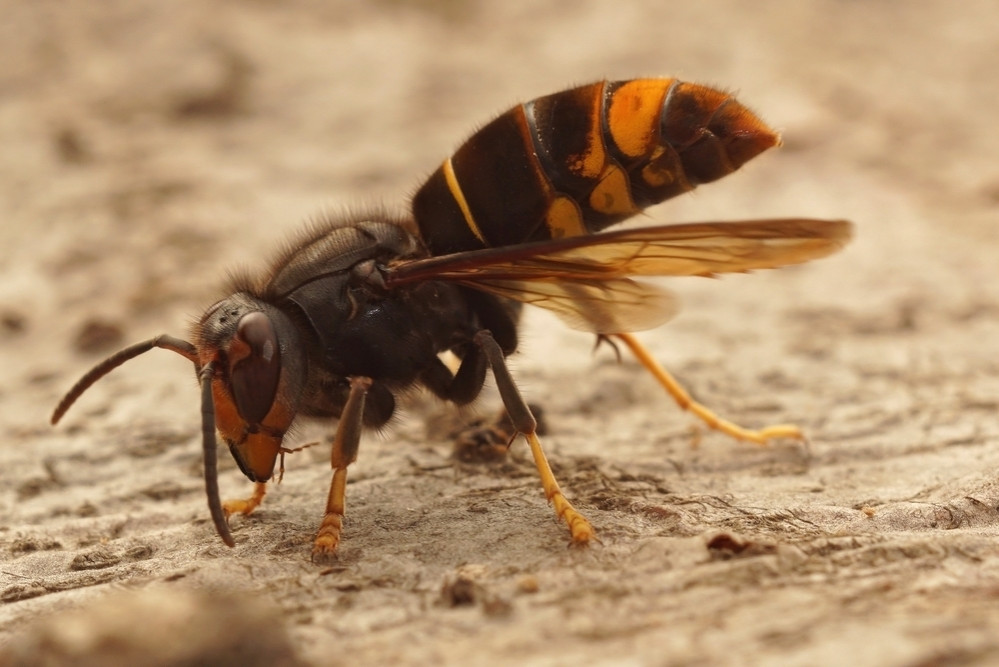
02.12.2025 Western Switzerland: Killer hornet eats bees
The territory of the Asian killer hornet has expanded considerably this year, with a notable increase reported in western Switzerland. This invasive species poses a significant threat to native bee populations, as bees make up the majority of its diet. The potential consequences are serious. Moreover, the hornet represents a danger to individuals with allergies to its venom.
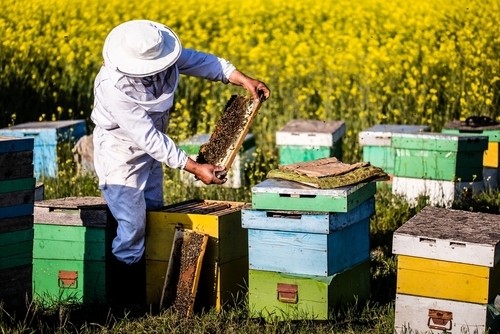
25.11.2025 Serious concerns about the bee population!
Asian hornets are inflicting significant harm on beehives across multiple parts of Europe, as reported by local beekeepers. Even a small number of hornets can destroy an entire bee colony within hours. This sharp decline in pollinators could have serious consequences for pollination, local ecosystems, and agricultural productivity.
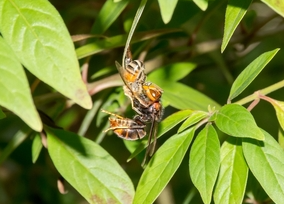
18.11.2025 Asian hornet doesn't just eat bees!
The danger it presents to insects is substantial!
The Asian hornet feeds largely on honeybees—up to 85 percent of its diet—alongside beetles and flies. This high level of predation not only poses difficulties for fruit growers but also further threatens already vulnerable bee populations.
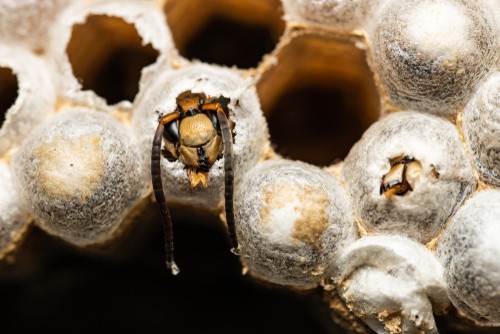
11.11.2025 How did the Asian hornet get to Europe?
The Asian hornet likely arrived in Europe unintentionally and has quickly expanded throughout France and nearby countries. Its adaptability to different environments and the absence of natural predators have contributed to its rapid spread. A single nest can generate several hundred new queens in one breeding season.
Asian Hornet Reporting Form
Please fill out all required fields and submit the form.
Help us!
If you discover an Asian hornet or a nest of this invasive species in Monthey, it is of the utmost importance that you report it immediately. The Asian hornet is not only dangerous to humans, but also poses a serious threat to native bee populations and the ecological balance in Switzerland.
Why is it important to report the find?
The Asian hornet's invasion of specific regions leaves a significant footprint on the native insect population, particularly honey bees. As they prey on bees, it initiates a downward trend in pollinator populations, consequently affecting the intricate balance of local flora and agricultural output. By reporting sightings, experts can react quickly, remove the hornets or their nests and thus prevent the spread of this invasive species.
Notification form for sightings
Preserving the balance of our ecosystems and safeguarding our native insect populations requires your collaboration. We urge you to report any suspicions or sightings of the Asian hornet using our specialized reporting form. With your help, we can take early action to minimize the spread of this dangerous species in Switzerland and protect our invaluable biodiversity.
Your contribution is crucial in the fight against the Asian hornet in Monthey. Together we can protect nature and maintain the balance of our ecosystems;
Thank you for your vigilant attention and your commitment to protecting our environment.
How dangerous is the Asian hornet?
The Asian hornet (Vespa velutina) is a predatory insect that originated in Asia and has spread in recent years to various parts of Europe, including France and now also Switzerland and in Monthey. Although it poses a threat to honey bees and native biodiversity, it is generally no more dangerous to humans than other wasp species. Nevertheless, there are some aspects to be aware of:
1. Threat to honey bees: The Asian hornet preys on honey bees, threatening native bee populations. A decline in bees can have a negative impact on pollination and thus on local flora and agricultural production.
2. Stings: As with other wasp and hornet species, the stings of the Asian hornet can also be painful. For most people, the stings are unpleasant but not dangerous. However, people who are allergic to wasp or hornet stings can suffer a severe allergic reaction, which in the worst case can lead to anaphylactic shock.
3. Aggressiveness: Although the Asian hornet is not necessarily more aggressive towards humans than other wasp species, it can become aggressive if it feels threatened, especially near its nest.
4. Ecological effects: Apart from the direct effects on honey bees, the spread of the Asian hornet can also disturb the ecological balance by affecting the populations of other insects.
The Asian hornet and the Asian giant hornet (*Vespa mandarinia*) should not be mistaken for one another. The giant hornet, known as the "killer hornet," is significantly larger and potentially more harmful to humans due to its more powerful venom and sting size.
If you have discovered a nest, call us immediately: 058 510 22 54
Our hornet professionals in Monthey are certified by the VSS.
Frequently Asked Questions About Asian Hornets in Monthey
The Asian hornet's stings have the potential for serious or fatal consequences, ranking it as a much more dangerous insect than most other hornet species.
The Asian hornet, measuring up to 3 cm in length, is a noteworthy stinging insect renowned for its sleek, black physique accentuated by a dense and eye-catching coat of orange, yellow, and black stripes.
The Asian hornet is typically of a calm and non-assertive character. However, when faced with threats or cornered, it can rapidly adopt an active and aggressive defense stance.
Humans must be acutely aware of the severe toxicity of the Asian hornet's venom, which can result in painful bites and provoke allergic reactions.
With its poisonous sting, the Asian hornet is a threat to human safety. The resulting pain is more intense than that caused by other wasps, and allergic reactions may occur.
Should you come across an Asian hornet and need to report it, it is crucial to get in touch with either a regional officer dedicated to the preservation of wild bees or the appropriate agency operating under the Ministry of Agriculture.
Preventing attacks and curbing the dispersal of Asian hornets require the timely report of sightings, given their highly territorial and aggressive tendencies.
To effectively manage the presence of Asian hornets in Switzerland, professional hornet control is essential. It is advisable to contact a proficient pest control service.
Asian hornets do not enjoy protected status, but it is crucial to monitor their numbers closely to prevent their proliferation.
During hibernation, the Asian hornet can be observed either hibernating collectively or as a solitary creature, commonly seeking refuge in the corners of walls, buildings, garden sheds, chance houses, or tree hollows.
Would you like more information about Asian hornets? Then take a look at our FAQ's about Asian hornets.
Private inquiry form
For an uncomplicated request to remove an Asian hornet's nest, please use our contact form for private individuals.
Real estate inquiry form
Use our property management order form to request the removal of an Asian hornet's nest.




_7.jpeg)
_7.jpeg)
_8.jpeg)
_7.jpeg)